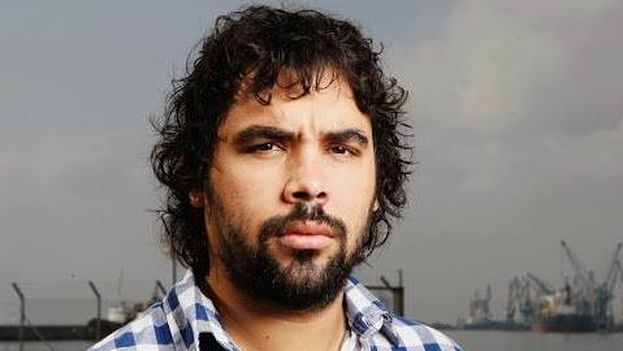
![]() 14ymedio, Reinaldo Escobar, Havana, 10 April 2017 — Facing the times that we live in can be an unpleasant task. And doing it without discrimination based on ideological viewpoints and with immediacy, takes visions of daring. This is the challenge that the Center for the Application of Political Marketing and Political assumes with the election of the “politician of the week,” an initiative that approaches the Cuban reality from its protagonists.
14ymedio, Reinaldo Escobar, Havana, 10 April 2017 — Facing the times that we live in can be an unpleasant task. And doing it without discrimination based on ideological viewpoints and with immediacy, takes visions of daring. This is the challenge that the Center for the Application of Political Marketing and Political assumes with the election of the “politician of the week,” an initiative that approaches the Cuban reality from its protagonists.
The profiles developed by the independent entity are made in collaboration with the site Primavera digital (Digital Spring), the historian Dimas Castellanos and the journalist José Antonio Fornaris, among others. They are distributed through e-mail and several web pages. Their intention is to summarize, with the fewest adjectives, the biography and significant details of those who mark the events of the Island. Those faces that embody the moments most sublime and most ridiculous of the day-to-day.
The “politician of the week” does not evaluate the person, but rather the events in which he or she has taken part and the decisions for which they are responsible. The brief sheet that accompanies their name doesn’t judge, but it does describe. In a country where most of the time the public debate centers on “killing the messenger” instead of understanding the message, this moderate exercise carried out by the Center takes on hints of the historic.
So far this year, the names included in the classification have ranged from officials in the highest ranks of power to opponents condemned for their activism. This wide range of points of view can only be recognized from an independent perspective, given that the official media only gives space to names linked to the government.
Its catalog of personalities is the closest thing to a democratic exercise, in which there is no discrimination or tendency to stigmatize positions
Thus, this civic initiative has described both Jennifer Bello Martínez, president of the Federation of University Students, and Dr. Eduardo Cardet Concepción, a person Amnesty International has declared a political prisoner of conscience. In its entries it has shed light on the life of the new interior minister, Rear Admiral Julio Cesar Gandarilla Bermejo, as well as Carlos Lechuga, director of the censored film Santa and Andrés.
Nor have they missed, in their accounts, figures such as Vice President Jose Ramon Machado Ventura, a hard-liner known for his partisan orthodoxy, or Havana’s private taxi drivers who demonstrated their dissatisfaction after the imposition of price caps on their service.
The Center, led by the analyst Julio Aleaga, has given space to Tyrians and Trojans. Its catalog of personalities is the closest thing to a democratic exercise in which there is no discrimination or stigmatizing positions, a posture that in today’s times of polarization, does not stop giving some people hives or provoking indignation.
There are those who are upset to not have been included yet, while others cry out to have their names erased from the list. To the extent that it is list of the protagonists of a reality, the “politician of the week” approaches those who are part of events, but the evaluation of their performance will depend on the opinions of each individual reader.
